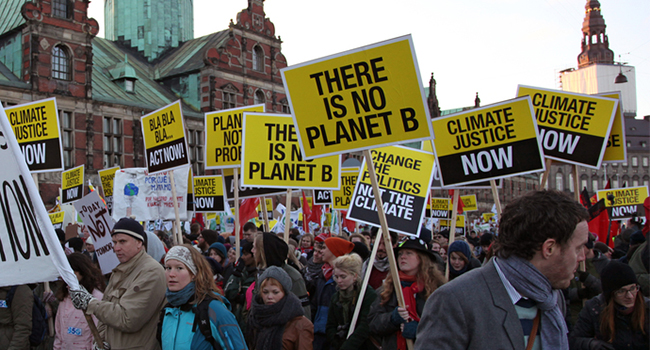
France Introduces Massive Security Measures for Climate Summit
- By Sydny Shepard
- Nov 30, 2015
Despite the terror attacks on Paris in early November, French Foreign Minister Laurent Fabius decided not to move or postpone the U.N. Climate Conference, also known as the COP21. To call off such a major gathering of world leaders in the French capital would have been an unthinkable surrender to terrorism.
The security situation involved with accommodating nearly 150 heads of government and an additional 40,000 visitors and delegates is daunting especially because of the fact that the conference will run for nearly two weeks.
France has dedicated 2,800 police and gendarmes to ensuring the security of the summit venue at Le Bourget, on the northern outskirts of Paris. A further 8,000 officers have been deployed to secure the country’s borders. Altogether, 120,000 police and gendarmes have been mobilized across France according to the Interior Ministry.
The government had announced at the beginning of the month that border controls would be imposed ahead of COP21 -- in what Interior Minister Bernard Cazeneuve then called a precaution against "a terrorist threat or risk to public order."
Cazenueve said that that more than 300 people had been arrested since November 13, the day of the attacks, and nearly 200 of them remain in custody.
Because terror groups tend not to target summits precisely and stage attacks to coincide with such events elsewhere, French authorities have banned public demonstrations planned to mark COP21. Authorities said, “It was a difficult decision to make but in the present context, the safety requirements are the priority.”
All public rallies in Paris have been banned since the attacks, and providing security for a march of tens of thousands of people while keeping the summit itself safe would have been a logistical nightmare. There was also the risk of panic in the event of some sort of explosion; a firecracker set off a stampede in the Place de la Republique days after the recent attacks.
The security measures put in place have not affected the climate activists passionate about pressuring world leaders to create a better plan for the Earth’s environment. The frustrations over restrictions on protests put in place gave rise to what French President Francois Hollande called, “scandalous” scuffles between activists and police.
Police arrested more than 200 people following flare-ups in which protesters pelted police with shoes, bottles and even candles police said were taken from memorials at Place de la Republique.
Hollande said authorities knew “troubling elements” would arrive in Paris for the talks and said that is why “these sort of assemblies were banned and some were ordered to stay home.”
Despite those tensions, demonstrators were largely peaceful ahead of the crucial climate change session. In place of the big march, protesters lined up thousands of shoes representing climate change activists.
The talks will begin on Monday, November 30, with the aim of reaching a landmark global deal on limiting greenhouse gas emissions.
The leaders of the United States, China and India, the world's top three carbon-emitting countries, are among those scheduled to attend the opening day of the event.
About the Author
Sydny Shepard is the Executive Editor of Campus Security & Life Safety.